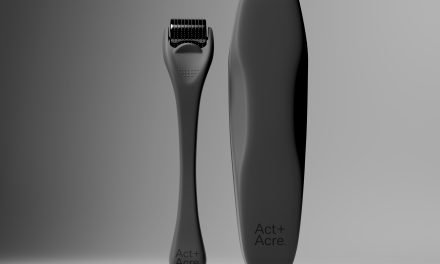
As a geriatrician, I work with senior patients who suffer from a diverse range of problems, including memory worries, anxiety, pain, diabetes, falls, and more. One symptom many of them have in common is poor sleep.
Having enough sleep feels great, but sleep should not be regarded as a luxury. Sleep is an essential element which your mind and body need to work at an optimal level.
Getting enough sleep, which for the vast majority of the population is between 7-9 hours each night, can help enhance your memory and ability to learn, aid decision-making, improve your blood sugar level and your mood.
Sleep doesn’t just have short-term benefits, however. People who get regular, good quality sleep also enjoy better health in the long-term and are more protected against things like cardiovascular disease and obesity – compared to those who have variable sleep habits, like shift workers.
For those of you who would like to feel a little more rested, here are 10 strategies to improve your sleep.
Get the Light Right
Light helps to set our body’s day-night cycle, also termed “circadian rhythm.” Getting out in the morning to get some daylight exposure is a good way to let your body know that it is daytime and to suppress the sleepy hormones.
The flip side of this is that avoiding bright lights helps your brain to release melatonin, the “feel sleepy” hormone.
Blue-wave light is the kind that particularly encourages us to wake up. In that respect, some people even buy orange tinted glasses for the evening to give their brains the best chance to wind down.
Put the Screen Down
Mobile devices, such as iPhones and iPads are particularly potent when it comes to suppressing melatonin release. Reading on an iPad before bed is a sure-fire way to suppress melatonin production. If you want to get some sleep, read an old-fashioned print book instead.
Exercise
Exercise and sleep have a bidirectional relationship as they tend to enhance each other. When you have had the chance to be physically active, you are more ready for bed, but sleeping can also help you to have a harder exercise session.
When you are more rested, you have the energy to throw yourself into your workout, which, in turn, will give you a more restful sleep the next night.
Cool Down
As we near the time when we get ready for bed, our bodies actually cool down a little. Even though it can feel nice to be cozy and warm, the cooler temperatures of night help us sleep.
Turning the thermostat down to 60-67 degrees Fahrenheit or 18-20 degrees Celsius is one way to prepare your body for optimal sleep.
Avoid Stimulants
Although a cup of tea before bed is a nice tradition, it does contain caffeine. It takes your body around six hours to break down half the caffeine in your morning coffee. Naturally, this means that if you drink a coffee at 3 p.m., half the caffeine is still flowing around your body at 9 p.m.
If you want to have refreshing sleep, keep the coffee/tea and cola for before midday.
Avoid Alcohol
As a well-known depressant, alcohol can easily make you drowsy – but it actually impedes deep sleep. When you have been drinking, the alcohol in your system works to stop you from getting into a deep sleep.
As a result, you experience multiple night awakenings which leave you feeling lethargic in the morning.
Follow a Bedtime Routine
Just like babies and small children, your body can really benefit from a winddown before bed. It is a good idea to start an hour before you want to go to sleep, perhaps with a relaxing bath and a peppermint tea, followed by reading in low light.
Having a consistent bedtime will also help your circadian rhythm.
Get Up at the Same Time Each Morning
Although it can seem like a good idea to catch up with a weekend lie-in, this can throw your sleep out for the next night. One of the recommended changes for improving sleep is to get up at the same time every day so your brain knows what to expect.
Avoid Naps to Sleep Better After 60
If you are having trouble sleeping at night, the tempting afternoon nap is not a good idea. This reduces sleep pressure and means that you are not as ready for bed at night.
Particularly problematic is the early evening nap in front of the TV. It is better to actually go to bed – or choose a more engaging activity.
Get Professional Help
If you are chronically exhausted, having unrefreshed sleep, snoring, or falling asleep whenever you sit down, you might have an underlying medical condition.
There are some conditions – like obstructive sleep apnea, where the airway closes when the muscles relax for sleep – that lead to extremely unrefreshing sleep. If simple sleep hygiene measures don’t help, it is time to see a sleep physician.
Additionally, if you have significant insomnia, described as trouble falling asleep or staying asleep, cognitive behavioral therapy with a psychologist is the most evidence-based treatment.
Invest in the Right Mattress
You shouldn’t disregard your mattress either. If it’s too soft or too hard for you, getting the sleep you need will be challenging. If you are unsure what works best for you, go to a store and try the offerings. There is bound to be at least one that matches your needs.
Pursue Good Sleep
Chronic sleep deprivation is a growing problem. Although some people suffer from medically diagnosed insomnia, for many it is caused by the distractions provided by modern life.
It often has to do with deciding to watch just one more episode of that compelling TV show, or having that glass of wine after dinner, or scrolling Facebook when you should be going to bed.
Changing habits is hard, but if you want to optimize your physical and mental health in the short- and long-term, sleep is an essential choice you need to make.
For all the latest research on health and longevity, visit DrKateGregorevic.com and sign up for my newsletter.
How many hours per night do you sleep? Is your sleep productive and restful? What changes have you made to your routine to improve your sleep? Please share your thoughts and experiences with our community!





